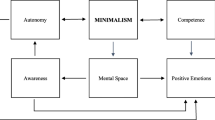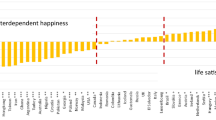Abstract
Arising restrictions of global economic growth due to limited natural resources and capacity of the biosphere adversely affect on people level of life and future expectation. That leads to mass depression and social instability. To consider this problem, psycho-physiological model of onward hedonist in consumer society is developed and investigated. This model is based on the fact that human nature generates a growing desire, needs to progress. After reaching the limits of growth, member of consumer society feel persistent negative emotions and dissatisfaction. It results to socio-economic stagnation, social and international instability. The first type of possible solutions to this problem is based on the global expansion of the limits of growth (e.g., increasing of macroeconomic demand as a result of new Kondratieff technological cycle). The second type of solutions refers to local limits extension of growth within one or more countries, by means of their economic, political or military expansion in the world. But such solutions lead to international instability. The third type of solutions corresponds to periodical decreasing of the macroeconomic consumption followed by its growth (e.g., global financial crisis, decay of states and their unions, national and military conflicts, wars and so on). Such solution also leads to social and international instability. Humanistic solution consists in creativity development of people (especially middle class of developed countries) to focus on spiritual development. So rising desires of these people in spiritual realm can be satisfied under limits of global economic growth.





Similar content being viewed by others
Abbreviations
- ANS:
-
Autonomic nervous system
- COH:
-
Creative onward hedonist
- CNS:
-
Central nervous system
- OH:
-
Onward hedonist
- SD:
-
Stairs of Desires
- 1NSS:
-
First neural signal system
- 2NSS:
-
Second neural signal system
References
Cheshko V, Glazko V (2009) High Hume: bio-power and bio-policy in society of risk. MA Academy Press, Moscow (in Russian)
Kile F, Dimirovski G (2008) Choices for global social stability. In: Reports of the 17th IFAC World Congress, Seoul, pp 6681–6685
Schultz V, Tsyganov V (2010) Modernization of national security system. Nauka, Moscow (in Russian)
Tsyganov V (2008) Progressive adaptive mechanisms for the international cooperation. In: Reports of the 17th IFAC World Congress, Seoul, pp 6697–6702
Tsyganov V (2010) Regulation of decentralized active system development and intelligent control mechanisms. In: Reports of the 12th IFAC Symposium “Large Scale Systems. Theory and Applications”, Lille, pp 1397–1402
Tsyganov V (2011) Intelligent mechanisms for global evolution regulation. In: Reports of the 18th IFAC World Congress, Milan, pp 3130–3135
Tsyganov V (2012) Adaptive mechanisms & high Hume technologies: theory of human systems. Academy Project, Moscow (in Russian)
Tsyganov V, Schultz V (2012) High Hume technologies in political system of society. In: Sociological research, vol 8 (340), Moscow, pp 85–93 (in Russian)
Author information
Authors and Affiliations
Corresponding author
Rights and permissions
About this article
Cite this article
Tsyganov, V. Limits of global growth, stagnation, creativity and international stability. AI & Soc 29, 259–266 (2014). https://doi.org/10.1007/s00146-013-0483-x
Received:
Accepted:
Published:
Issue Date:
DOI: https://doi.org/10.1007/s00146-013-0483-x




